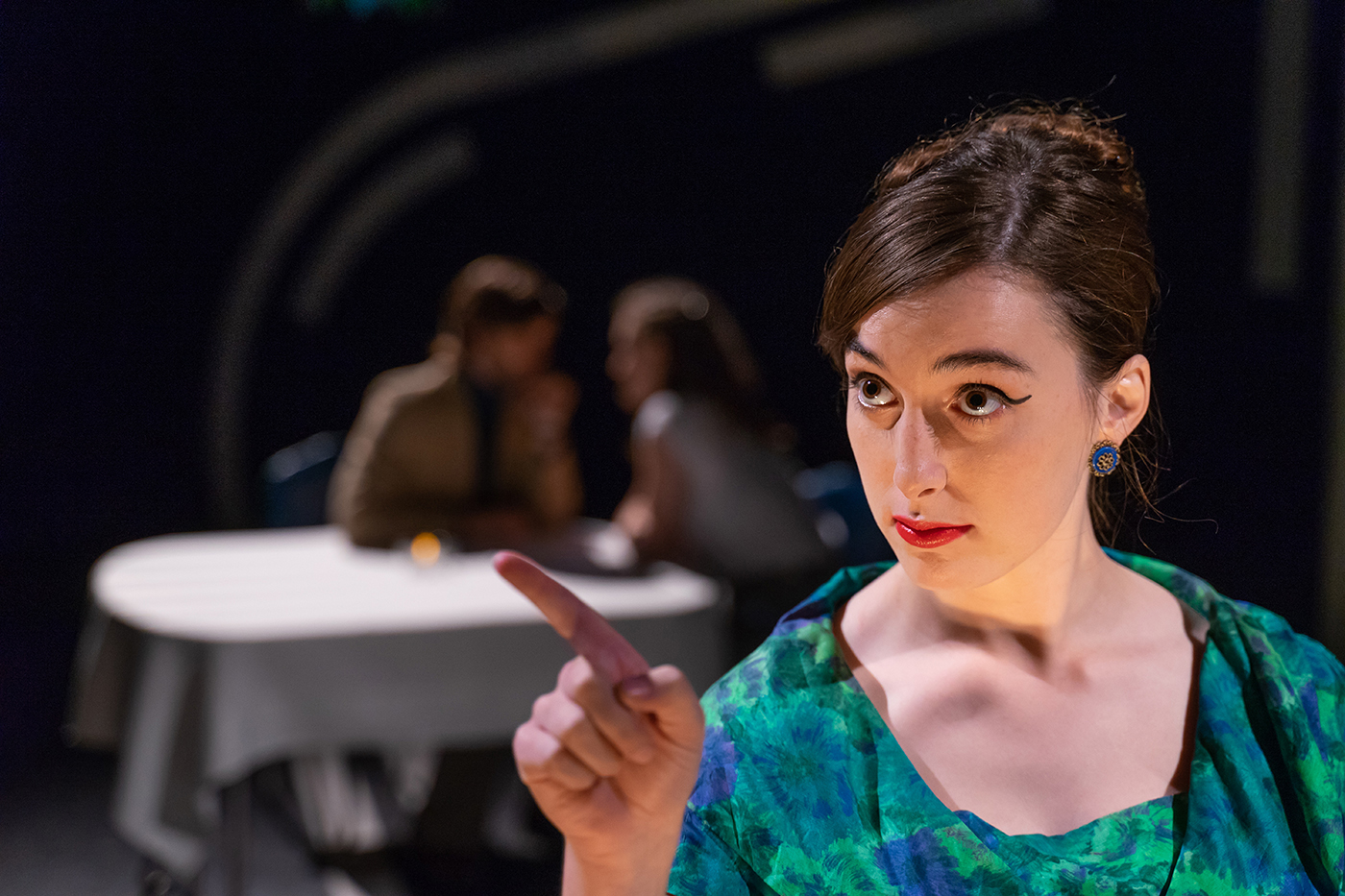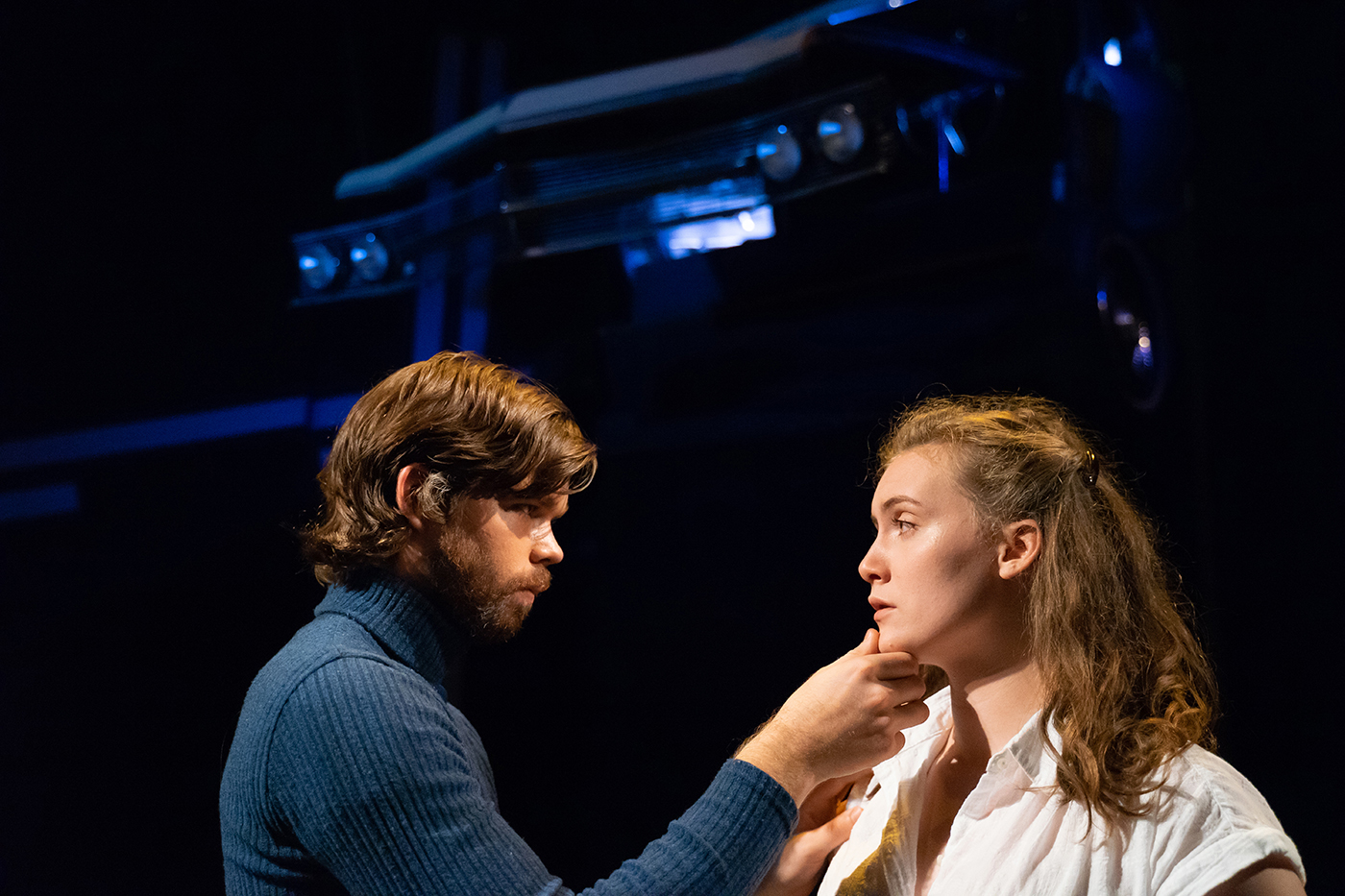The time is right to have conversations about consent and trauma.
We are in the midst of the #MeToo movement, wherein women and men are sharing their stories of surviving nonconsensual sexual deeds. We’re in the wake of Brett Kavanaugh’s confirmation to the Supreme Court amid allegations of his sexual misconduct.
People all over the United States and abroad are using these events to open up conversation about what consent looks and sounds like. Teachers are creating lessons for their students. Parents are talking to their children about it. Lawmakers are considering bills about it. And at Northeastern, the Theatre Department is performing a play about it.
How I learned to Drive, the Pulitzer Prize-winning play, which opens in Northeastern’s Studio Theatre on Thursday, is about “consent and power and trauma and history,” said Dani Snyder-Young, who directs the show.
Written by American playwright Paula Vogel, the play follows the complex sexual relationship between Li’l Bit and her uncle Peck. Narrated by Li’l Bit as an adult, the play bounces among her memories of her uncle through childhood, adolescence, and college. Snyder-Young said Vogel paints each character as more complicated than good or evil, which invites the audience to consider relationships in ways “that are not just black and white.”

Alyse Clinton rehearses a scene from “How I Learned to Drive.” Performances run from Thursday, Oct. 11 to Sunday, Oct. 21 in the Studio Theatre at Northeastern. Photo by Lauren Scornavacca.
“It’s much more relevant now than I necessarily knew it was going to be when I chose it in the spring,” said Snyder-Young, who is also an assistant professor in the Theatre Department. “This play asks tough questions about the nature of trauma and relationships.”
Keely Craig, who is studying theater and communications, plays Li’l Bit in the play. She said it’s been a “wonderful,” if “challenging” experience.
Written in 1997, “this play is still so painfully relevant today because it’s all about owning your own narrative,” Craig said.
While the play concerns itself with the ambiguous moments of a relationship, the actors themselves felt safe and respected, Craig said.
The cast worked with an intimacy director, Claire Warden, to perfect scenes in which characters were required to be emotionally and physically intimate with each other. Similar to a fight choreographer, who works to ensure that battle scenes are safe but realistic, Warden helped the actors convey closeness while still respecting each other’s physical and emotional boundaries.
“She created a safe environment for challenging things to happen,” Craig said. “It’s been one of the most wonderful experiences I’ve ever had as an actor. In the play, there are non-consensual moments, there are moments where you’re not quite sure if it’s consensual, there are moments where there’s a lot of tension that’s never acted upon; building those moments required a lot of nuance while still respecting each other’s boundaries as actors.”
Tickets for performances of How I Learned to Drive can be purchased online.
This story, by Molly Callahan, was originally published in News@Northeastern on October 11, 2018. See it in its original form here.


